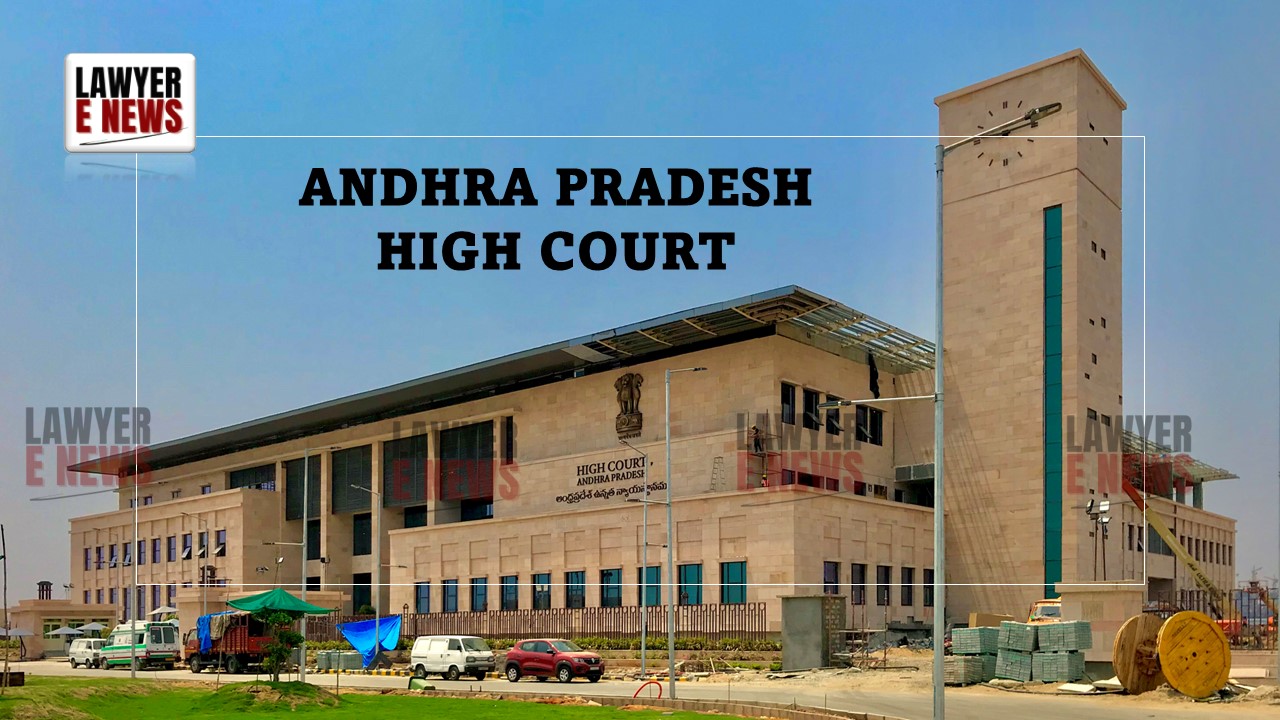-
by Admin
15 February 2026 2:36 AM



Andhra Pradesh High Court delivered a significant ruling addressing issues of declaration of title, cancellation of sale deed, and rectification of a registered sale deed. The Court upheld the dismissal of the suit for title declaration and cancellation of the sale deed while affirming the rectification of the sale deed based on mutual mistake. The judgment, authored by Justice V. Gopala Krishna Rao, emphasizes principles such as burden of proof in fraud cases, limitation for challenging sale deeds, and rectification of mutual mistakes under the Specific Relief Act, 1963.
The appellants (plaintiffs in O.S. No. 102 of 1999) sought cancellation of a sale deed executed in 1978 on grounds of fraud and undue influence. The High Court held that the plaintiffs failed to provide specific and cogent evidence to substantiate their claims. The Court observed:
"Fraud, misrepresentation, or undue influence must be specifically pleaded and proved with cogent evidence. General allegations without evidence cannot sustain a claim for cancellation of a registered instrument." [Paras 22-24]
The Court noted that the evidence provided by the plaintiffs, including oral testimony, was contradictory and insufficient. The appellants could not prove their allegations of fraud beyond a reasonable doubt as required by law. Furthermore, the plaintiffs failed to examine the attestors or the scribe of the sale deed, which further weakened their case.
The sale deed in question was executed in 1978, and the suit for its cancellation was filed only in 1999, after a delay of 21 years. The Court ruled that the claim was barred by limitation under the Limitation Act, 1963, as the appellants failed to provide any valid explanation for the delay. The Court remarked:
"A suit for cancellation of a sale deed must be brought within the limitation period, and in the absence of valid grounds for condonation, the suit is time-barred." [Para 25]
The Court referred to Union of India v. Chaturbhai M. Patel & Co. (AIR 1976 SC 712), reiterating that allegations of fraud must be raised and proven promptly to prevent misuse of the judicial process.
The appellants relied on revenue records and pattadar passbooks issued in 1999 to establish ownership. However, the Court clarified that:
"Entries in revenue records and pattadar passbooks do not confer title over immovable property. They merely establish possession or revenue liability." [Para 22]
The plaintiffs could not establish ownership through revenue documents, especially when their title was already contested by the registered sale deed.
The respondents (plaintiffs in O.S. No. 150 of 1999) sought rectification of the 1978 sale deed to correct incorrect survey and patta numbers. The Court found that the mistake in survey and patta numbers was mutual and did not affect the boundaries or title. Justice Rao emphasized:
"The boundaries of the property remain undisputed, and the incorrect survey and patta numbers in the sale deed were a result of mutual mistake. Rectification is justified under Section 31 of the Specific Relief Act, as the mistake did not affect the actual title or boundaries." [Paras 31-33]
The Court further clarified that boundaries hold precedence over survey numbers in disputes over property descriptions.
The appellants argued that the rectification suit was time-barred. However, the Court held that the cause of action arose in 1999 when the appellants attempted to alienate the property based on incorrect survey and patta numbers. Moreover, the Court noted that the appellants had failed to raise the issue of limitation in their pleadings:
"In the absence of a limitation plea in pleadings, the issue cannot be raised subsequently. Further, the cause of action for rectification arose in 1999, and the suit was filed within the limitation period." [Paras 27-29]
The appellants relied on an Advocate-Commissioner’s report to substantiate their claims. The Court, however, held that such reports do not constitute substantive findings unless tested through examination in court:
"A report by an Advocate-Commissioner does not by itself amount to a substantive finding and is subject to the process of the court during the course of the trial." [Para 31]
Since the Advocate-Commissioner was not examined as a witness, the report carried no evidentiary value in this case.
The Andhra Pradesh High Court dismissed both appeals, affirming the trial court’s decision:
Date of Decision: November 5, 2024
